Meditation. It has become more and more popular recently. Yet, it still seems to be an intangible practice for many people. I truly believe it’s time to become familiar with this life-altering tool … let me start this way:
A (deep) sense of dissatisfaction, unfulfillment, and even moaning – does this sound familiar to you? In one way or another, probably each of us has already experienced such feelings. It simply indicates the disconnection from our hearts which is the primer location of the Self, our true nature. These feelings simply show that we’re not established in being, that our awareness rather dwells in the thinking mind. It is a very common phenomenon which easily happens when we start looking at the outside and forget the importance of looking inside.
I can tell from my personal experience that if you cultivate a supportive spiritual practice, then life becomes a process of reconnection. However, as we are constantly engaged in the external world and operate in society, this bond of connection may losen every now and then. If you sharpen your awareness with supportive tools that bring you back into alignment, life will become much easier and even joyful. The moment I started meditating every single day, I’ve been experiencing a lot of changes within myself. Thus, my perception of the outer world has changed simultaneously.
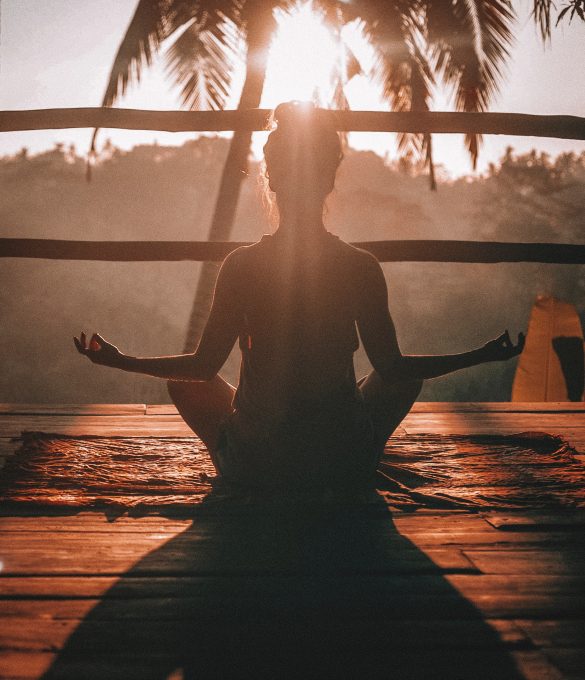
As you probably know: The outer world is only a reflection of your internal state of being.
When we think of meditation, we usually imagine a spiritually interested person (or yogi) who sits in lotus position with eyes closed, hands formed into a mudra, and listening to the silence around. Well, this is a stereotypical image, but the state of meditation can be experienced in many different forms, by every single one of us. Yes, you’ve probably been a few or even a lot of times in a meditative state before. At least for a moment.
„Prayer is when you talk to God.
Meditation is when you listen to God.”
(Joey Reiman)
Let’s start with the basics:
- What exactly is meditation?
- Can it be defined precisely, in a tangible way?
- Why is it so meaningful to embark on this inner journey?
~ What is meditation? ~

Just as there are many meditation techniques, you will also find lots of different, yet similar definitions of the word “meditation”. After all, the purpose of meditation is always the same, so I would define it in the following way: Meditation is a progressive way of quieting the mind until you enter the source of the mind which is the spirit – to put it in an even broader and deeper way – the state of pure consciousness. Your awareness. The conscious mind is like a distracting, never-ending thinking machine in the foreground; but there is an underlying state of consciousness in the background where you can experience full presence without any interference of compulsive thinking.
Meditation takes you to the source of the Self as it unfolds the various layers of conditioning and quiets the thinking mind. You could also say: Meditation is a technique that brings you person into the present moment so that you’re more meaningfully able to connect with yourself and subsequently with everything and everyone around. It enables you to arrive and dwell in the present moment by overcoming the constant thinking process.
The Now (present moment) is all there is. It is the reality of life. The past as well as the future only exist in the mind, but they are not real. If you’re not rooted in the present moment, you will start to worry about the future or regret what happened in the past. Thus, you’re “living” a conceptualized paradigm. The real joy of life comes from our ability to actually be right here right now and to experience fully what(ever) is happening.
“When meditation is mastered,
the mind is unwavering like the flame of a candle in a windless place.”
(Bhagavad Gita)
Meditation is …
- your state of being.
- the realization that you ARE which is prior to all doing.
- the experience of the presence exactly as it is. You are no longer conceptualizing life in your head.
- the realization that there is no past and no future, for the past and future are merely concepts produced by the brain.
- the state of alignment with totality. There is no need for a mental understanding of the situation.
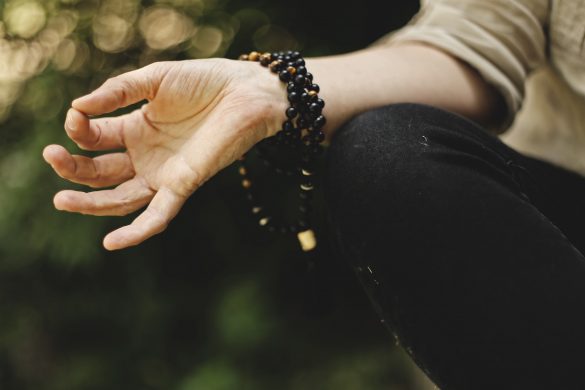
The practice of meditation is actually not an active practice, it’s not about doing, but it is a state of being that you can tune into. It is an organic process that unfolds naturally as soon as you let go of identification, of thinking, judging, labelling, etc. and thus, surrender to the present moment.
Meditation is the principle disciple in yoga. According to Ashtanga yoga (eight limbs), it is named Dhyana (7th limb) and described as absorption or union. When you step into a meditative state, you become one with whatever you focus on. The previous limb (Dharana, 6th limb) prepares the practitioner for meditation; it means to 100% concentrate or focus on something. As the practitioner enters Dhyana, there is no separation between him and the object of attention. In meditation, the experience of oneness, of universal consciousness becomes more tangible as your own consciousness alters and enters a higher state.
~ You are not your thoughts ~

During the (unconscious) process of thinking, we’re totally engaged in thoughts as they continuously unfold. This state of unconsciousness totally disconnects us from the present moment and our inherit nature. Thus, we’re literally victims of the mind; victims of the compulsive interference of judging, labelling, naming whatever we perceive. Regardless if it is positive or negative thinking. A thought without awareness has the potential to become destructive and insane. If you belief thought is all there is, it may take possession of you. On the contrary, if you are aware and use the mind as a tool, if you don’t engage, attach, or fall deep into certain thoughts, you’ll reclaim your power.
Let’s be honest: Did anyone ever tell you that you’re not your thoughts? That thoughts don’t inherently belong to you? – Most likely not. However, thoughts are simply another kind of sensory perception, just like our senses of smell, taste, sight, hearing, and touch. Thoughts are invisible packages of a specific information that touch upon a persons’ consciousness, but they don’t want to stick with you. It is your choice: you can either hold onto it or let it go. Imagine a thought as an odor or a sound that wanders through the air and is perceived by the people around.
The thought itself has no power at all. It is only as powerful as the interest you give it. A thought always requires your attention and therefore the energy you put into it in order to make it powerful. A thought is a neutral stimulus which may get your attention. But where does it actually come from?
Many thoughts are not even your own. You kind of borrow them. They wander within the collective field and may touch your awareness, if you’re vibrating on the same frequency. Imagine them as bubbles floating around. If they find any aspect inside you that resonates with its own frequency, you will literally attract it into your thinking mind. Then you connect with the universal mind as this certain type of energy moves through you. At the same time, it means that whatever you are thinking and paying attention to, it has an impact on the collective consciousness.
“Every act of kindness
raises the vibration of the entire universe.”

Emotions express themselves the exact same way: You may experience anger, sadness, jealousy, or joy. The story – why you feel this way – may differ from person to person, but the emotion itself affects every human being. Thus, a thought or emotion is not yours. You just pick it up as it may get hold of you. Thoughts can also arise from your past experiences, known as memories. Everything you went through in life has been stored in your memory.
The identification with your thoughts is very well-known as the ego. The ego is a construct that has been necessary in the evolution of humanity. Without the ego, we would not be able to experience the variety of life with our senses, we would not be able to express our individuality, because otherwise we could only perceive ourselves as the same stream of energy, part of the greater consciousness. Without an ego there is no sense of separation, yet no sense of diversity. The ego has its importance and is necessary to support us on our journey. Only when we become identified with it – identified with our physical form (body) and our thoughts (mind) – we lose the important connection to our infinite Self that dwells inside. Thus, we lose connection to the universal consciousness, our origin, our true nature.
“The ego is just waiting to identify with anything.
Whether it’s your misery or being a great meditator.
It seeks some identification.”
(Eckhart Tolle)
~ Why meditating? What to expect? ~
Meditation does work holistically as it brings you back to your natural state of being. It calms the chattering mind, it harmonizes the body’s functions, and it allows you to align with the universe.
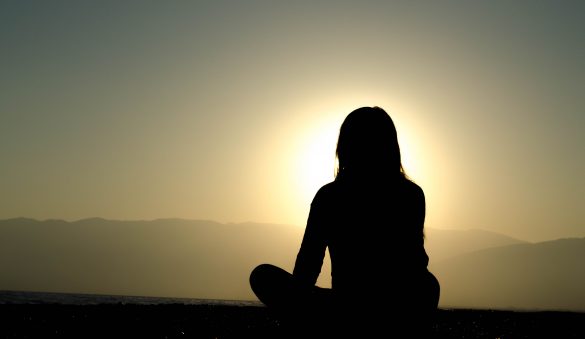 Especially in our modern world, people are highly stressed and overstimulated. We experience a lot of pressure, the compulsive strive for perfectionism, or just the urge to meet the needs of societal conditions. If we don’t have enough space to recover from this overwhelming stress, it impacts us in a negative way; mentally, emotionally, and also physically. The nervous system is constantly stimulated, meaning the fight-or-flight-response (sympathetic nervous system) is permanently active. That results in high cortisol levels, fatigue or burn-out on the physical level. If we don’t react early enough, disease will occur. There’s a lack, yet a strong need for allowing ourselves to regenerate by taking rest, letting go, and therefore activating the parasympathetic nervous system (rest-and-digest mode). Meditation allows us to enter this state of passiveness, yet awareness. It recharges the body, calms the breath, and at the same time the mind. Especially in today’s hyperstimulated society, I personally see a great need for meditation.
Especially in our modern world, people are highly stressed and overstimulated. We experience a lot of pressure, the compulsive strive for perfectionism, or just the urge to meet the needs of societal conditions. If we don’t have enough space to recover from this overwhelming stress, it impacts us in a negative way; mentally, emotionally, and also physically. The nervous system is constantly stimulated, meaning the fight-or-flight-response (sympathetic nervous system) is permanently active. That results in high cortisol levels, fatigue or burn-out on the physical level. If we don’t react early enough, disease will occur. There’s a lack, yet a strong need for allowing ourselves to regenerate by taking rest, letting go, and therefore activating the parasympathetic nervous system (rest-and-digest mode). Meditation allows us to enter this state of passiveness, yet awareness. It recharges the body, calms the breath, and at the same time the mind. Especially in today’s hyperstimulated society, I personally see a great need for meditation.
“Inner peace comes when you:
relax your body, quiet your mind,
and open your heart.”
(Tony Robinson)
What can we expect from meditation? How does it feel to be in a meditative state, to let go of the busy mind? As you may guess, words are not suitable enough to express an experience beyond rationality. However, there are tangible ways to get a glimpse of imagination:
- Have you ever seen a sunset that makes you speechless, that makes your mind stop, because you just see and feel the magnificence of nature?
- Have you ever had a child and held it in your arms for the very first time? As you looked into its eyes, you felt a strong bond with this tiny human being.
- Have you ever shared an exciting experience about something that overwhelms you with somebody else? As your enthusiasm enters the other people’s energy field and you connect by sharing the exact same vibration.
…it is kind of like that.
In meditation, the experience itself always stands in the forefront, whereas the knowledge around it appears to be secondary. As you desperately seek trying to understand what may happen, the thinking process itself inhibits the pathway of experience. We are so identified with the conceptual paradigm, i.e. compulsive thinking, that we miss out the direct experience of life itself.
~ Conclusion: Discover your true Self ~
Meditation as a practice enables you to connect with the present moment, so that you can connect with what is going on (internally and externally) in a more meaningful way. The more relaxed your body, the softer your breath, and the calmer your mind becomes, the deeper you’ll be able to go within. Your breath is the bridge between body and mind. The quieter you become, the more you can hear. The loud, superficial voices in your thinking mind may slowly disappear for a while. This is the moment when the soft, quiet voice from within gets the opportunity to communicate with you more clearly. Your innate truth will appear as you align with the Highest state of your Self.

“Quiet the mind, and the soul will speak.”
(Ma Jaya Sati Bhagavati)
I would say that meditation requires commitment, dedication, and therefore a daily practice in order to experience its benefits. At the same time it is not willpower that will make your practice successful. By relying on willpower, you force yourself to be still instead of surrendering into the present moment. Only by surrendering, stillness will arise naturally. If there is an aspect within yourself that resonate with the idea of meditating, I highly encourage you to give it a go. But what I can tell: It needs to come from within, not from an ego perspective.
“To a mind that is still,
the whole universe surrenders.”
(Lao Tzu)
Back in India at my Yoga Teacher Trainings, I was very blessed with life-altering experiences in meditation. Since my YTTC in Rishikesh (March 2018), I’m meditating on a daily basis and feel incredible results in my awareness and changes in my perception of life. I feel much happier, more composed, relaxed, and focused. I feel a lot more connected and peaceful. I can literally say: There was a life before and has been a life with a daily meditation practice.
If you’re interested to learn more about meditation (e.g. How to start? What kind of meditation suits me best? Do I have to sit in silence?), then stay tuned for more content on this fascinating topic.
I’m sending you lots of love and a big hug.
Namasté,
yours Isabel!
Pictures
Unsplash (www.unsplash.com)
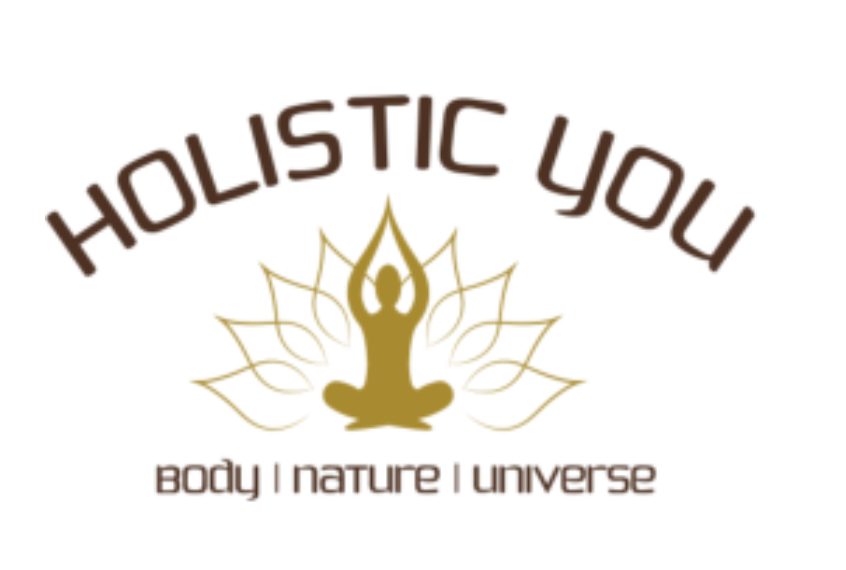




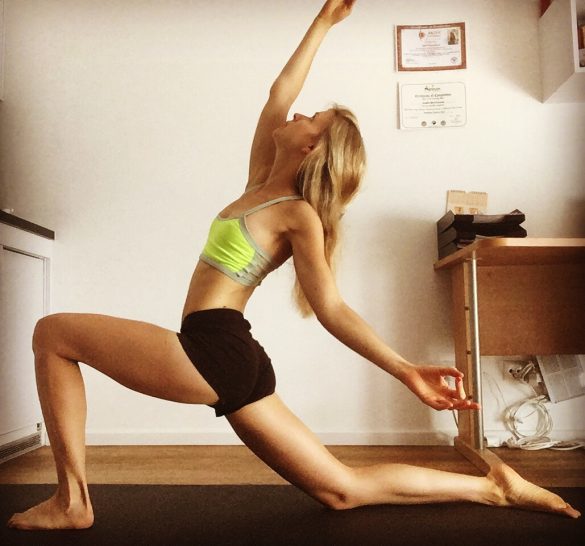
Liebe Isabel,
ich arbeite mich gerade nochmal durch Deinen Blog durch und möchte Dir einfach nochmal für Deine wertvollen Beiträge bedanken!
Gerade durch diesen Beitrag machst Du mir die Zusammenhänge so viel verständlicher und findest genau die richtigen Worte dafür!
Ganz herzliche Grüße
Ronja
Liebe Ronja,
ich danke dir aus ganzem, tiefstem Herzen für dein wunderschönes Feedback.
Es freut mich sehr zu hören, dass du mit meinen Worten in Resonanz gehst. Die Meditationspraxis hat mein Leben zutiefst bereichert. Vor allem nach meinem ersten Indien-Aufenthalt habe ich einen deutlich intensiveren Zugang zur Meditation erhalten dürfen.
Ich stehe dir jederzeit für offene Fragen oder Anregungen gern zur Verfügung.
Ganz liebe und sonnige Grüße an dich zurück,
deine Isabel!